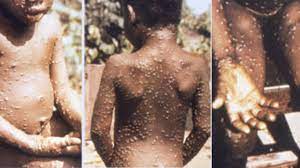

Svetlana Ekimenko – May 21, 2022
With symptoms commonly including fever, swollen lymph nodes and a rash with blisters, confirmed or suspected cases of monkeypox – a rare disease previously limited to Western and Central Africa – have been spreading across Europe this spring.
As cases of monkeypox, both confirmed and suspected, have been reported in the US, Canada and several European countries – such as the UK, Portugal, Spain, Sweden France and, most recently, Germany – the medical community is racking its brains to figure out how the outbreak started.
The World Health Organization (WHO) has decided to convene an emergency meeting of experts to discuss the outbreak, with a focus on transmission of the virus, its high prevalence in gays and bisexual men, as well as the situation with vaccines, The Daily Telegraph has reported.
The rare disease, a version of the smallpox virus that was eradicated in 1980 but is less transmissible, has previously been limited to Western and Central Africa.
On 7 May the UK Health Security Agency (UKHSA) was the first health authority in Europe to announce a case of monkeypox publicly. It was confirmed in a person who had recently flown into the country from Nigeria.
According to the European Centre for Disease Prevention and Control (ECDC), virus transmission appeared to have occurred as a result of homosexual contacts between men, at least in the UK case.
Since then, 19 more cases have been confirmed in the UK bringing the total up to 220, although the source remains elusive, as the infections appear to have been “locally acquired”, according to the World Health Organisation (WHO).

